Sigmund Freud the Controversial Pioneer of Psychology:
The
Famous Psychosexual Stages of Child Development
It can be argued that no one has contributed more to the field of psychology
than Sigmund Freud.
Freud spent years developing various aspects of his
theories, and although he is very often criticized, he can also be credited for
exploring provocative frontiers and opening new areas of study that had never
before been considered.
Freud introduced many new ideas and in this article we'll be exploring some of his most prominent ones:
- The unconscious mind and libido
- Components of
personality: Id, Ego, Superego
- The psychosexual stages of
development
- Psychoanalysis
Besides providing you with fascination information on the above theories of Freud, in this article you will also get:
- A biography on Freud
- Academic criticisms of Freud's
theories
- Resumes of Freud's most famous books and publications
So all in all, this is an in-depth, all-inclusive exploration
of Freud.
So if you're here for specific info - just
follow one of the links above - if you're here for the 'full monty', just read on, open your mind and let your conscious
(and subconscious mind) do the work for you :-)
The Sigmund Freud Biography
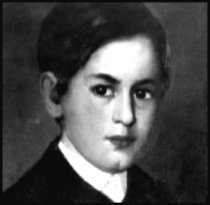 Sigmund Freud was born
on May 6, 1856 in Freiberg, Moravia, known today as the Czech
Republic.
Sigmund Freud was born
on May 6, 1856 in Freiberg, Moravia, known today as the Czech
Republic.
At about age 4, his family moved to Vienna,
Austria, where he lived for most of his life until emigrating
to England the year before his death.
Freud Was a Brilliant Student - Always Excelled in School
He studied medicine at the University of Vienna and shortly after graduation he went to France to work with Jean Martin Charcot (also known as the 'Father of modern French neurology').
Freud's Fascination of Charcot's Hysteria
It was under Jean Martin Charcot's direction that Freud began studying hysteria - the name given to physical symptoms that didn't seem to have a medical cause.
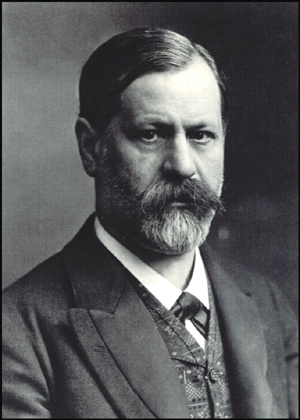 Playing a bit with Hypnosis but Leaving it for Free Association
Playing a bit with Hypnosis but Leaving it for Free Association
He also
learned about hypnosis as a research and therapy technique,
although he later abandoned this method for his own treatment
known as
Free Association.
It was around this
time that he switched his focus from neurology to psychology
and began investigating the "inner workings" of the mind.
Freud Marries and Has Children
In 1886 he married his wife, Martha, and the couple had six children, the most famous being Anna Freud who followed in her Father's footsteps and became recognized for her work in psychoanalysis.
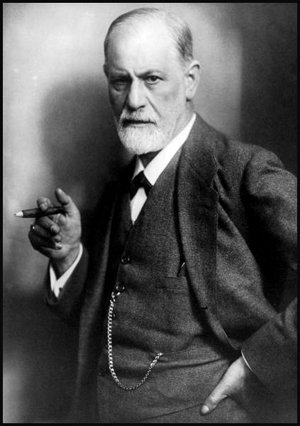 Freud
Coins Psychoanalysis
Freud
Coins Psychoanalysis
The term "psychoanalysis" was first introduced in 1896, and Freud claimed that it
was a way of tapping into a patient's unconscious thoughts and
feelings to find the root cause of certain anxieties and
mental illnesses.
In 1902 Sigmund Freud became an associate
professor at the University of Vienna, and in 1908 he founded
the Vienna Psychoanalytic Society.
In 1906,
he began
communicating with Carl Jung, and Freud's influence
can be seen in much of Jung's work.
Being of Jewish
descent, Freud found that Austria was no longer safe so he
emigrated to England just before the onset of WWII.
Sigmund Freud
died of cancer a year later, on September 23, 1939.
Intro to Freud's Many Famous Theories and Contributions
While Sigmund Freud is mainly criticized by contemporary
theorists, he is one of the most influential psychologists,
both past and present, to have ever lived.
Many will
argue that his ideas were too limited, his research
incomplete, and his theories unproven.
But, despite
decades of criticism, he is still being talked about, and his
works are still being studied in almost every area of society
- from parenting to education, counselling, relationship
workshops, and even the law.
- "Not only did Freud
greatly influence psychological and psychiatric work on
personality, but his work also had a tremendous effect on our
view of ourselves and our world. It can be argued that few
ideas in the history of civilization have had such a broad and
profound influence"
(Shultz, 1986, page 36).
Below you will find a short 2 minute video featuring Sigmund Freud where he tells about his struggle for recognition of his theories:
Freud?
"Oh, That's the Guy Who Thinks Everything Is about Sex!"
Almost everyone has heard of Sigmund Freud, and most
people are familiar with his psychosexual stages of
development.
In fact, this is the area that has come under the
most scrutiny in the past because Freud suggested that all
personality is connected to our libido, our sex drive.
Well, you can imagine the shock this created when he first
introduced the idea in the Victorian age of the 1890s!
And even today most people don't like to think of their
infants as sexual beings who are driven by their "urges", but
Freud talked about so much more than many people realize.
The Idea of Defense Mechanisms ... Thank Freud!
For
instance, you have probably heard of defense mechanisms,
right! You know, things like denial, projection, or isolation?
Most of us have used one of Freud's strategies to
protect ourselves at some point in our lives.
In fact,
a lot of counselling and support groups will work to make
people aware of their defense mechanisms and try to teach them
how to develop a healthier approach to problem solving.
Whether they know it or not, they are implementing ideas
first introduced by Sigmund Freud.
Psychoanalysis ... Thank Freud!
Or what about psychoanalysis?
Although it has changed over the years, psychoanalysis still
forms the basis for many counselling and psychiatric
approaches.
Free Association (a client verbalizes
thoughts, dreams, and responses without the guidance or input
of the therapist and without concern about "making sense"),
Play Therapy, and Hypnosis, actually all
have Freudian roots.
The Idea of the Unconscious Mind ... Thank Freud!
How many times have you said something
like, "I just do it unconsciously"?
Well, the idea of
the unconscious mind wasn't popularized until Freud suggested
that it played a large role in the development of personality.
If you believe there is a difference between the conscious and
unconscious, then you can thank Freud.
Whether you
agree or disagree with his ideas, it can be argued that Freud
has influenced every subsequent theory because it seems that
most experts are either working to elaborate on his theories
or trying to discredit and contradict his findings.
Either way, everything seems to come full circle and end up
right back at Sigmund Freud.
Freud Theory No. 1:
- The Unconscious Mind and
Libido
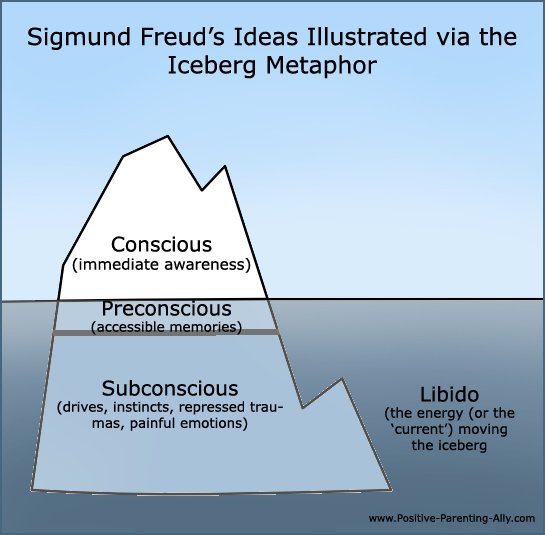
To understand Sigmund Freud, we must first
discuss his idea of the unconscious mind and the role it plays
in child development.
The Conscious and Preconscious
Mind
- The Small Easily Accessible Tip of the Iceberg
The conscious mind consists of the things you are aware of
such as your perceptions, thoughts, memories, or how you feel
at a particular moment in time.
Since the conscious
mind functions primarily in the present, Freud also talked
about the preconscious, which consists of those things
that are not in your immediate awareness but can be readily
accessed.
For example, you may forget about a particular event
until someone reminds you.
You are not always thinking
about what happened on your holiday last summer or how a
newspaper article affected the way you view local politics,
but you are aware that you hold these memories or perceptions
and can draw on them easily if required.
The conscious
and preconscious mind had been the focus of most psychological
research, but Freud suggested that these two aspects were
actually the smallest part of the mind.
Sigmund Freud believed
that the origin of all human behavior could be found in the
unconscious.
The Unconscious Mind
- The Huge, Heavy
and Invisible Bottom of the Iceberg
Today, we are very
familiar with the term "unconscious" and we understand that
the brain is absolutely amazing.
But, when Sigmund Freud first
introduced this idea, it caused a fair bit of controversy!
First, he proposed that the unconscious mind contains all
those things that we are not consciously aware of such as our
drives, instincts, traumatic memories, or painful emotions
that we have selectively forgotten in order to protect
ourselves.
Freud Claimed that Our Unconscious Is the Source of all our Motivations
In other words, we are
driven by the forces that we aren't even aware of. Well, this
started a whole new debate!
In a science-based world,
it was difficult for people to accept the idea that the
largest part of their mind was the unconscious and that the
majority of their behavior was being controlled by unseen
forces that could not be scientifically identified.
But, Freud didn't stop there ...
He believed that all
behavior is motivated by drives and instincts that cause
people to seek what is necessary for survival.
Sigmund
Freud
called this "energy" or "force" libido, which is Latin for "I
desire".
The Libido
- The Strong, Invisible Current
Deciding Which Way the Iceberg Drifts
According to
Sigmund Freud, the libido - or the sex drive - is the source
of all motivation.
He also claimed that personality
was primarily developed before the age of five and presented a
series of sexual stages that children must pass through on
their way to healthy personality formation (more on that later
in this article).
Freud believed that parents instill
more or less fortunate beliefs or associations in their
children that later in life become unconscious behaviors,
perceptions, and attitudes - all based on their experiences or
traumas at the different stages of development.
In
other words, sometimes as adults we do things and do not know
why. In so many ways we behave and react unconsciously:
- A child who is physically abused may unconsciously recoil at any attempt of physical
contact, even when he consciously knows that it is
safe and the person reaching out to him is not his abuser.
- Or, a child who is punished for not meeting her parents expectations when toilet training can become an adult who is obsessed with order and control because she doesn't want to set herself up for failure.
But, Freud's story of
development does not end here ...
Freud Theory No. 2:
-
The Id, Ego and
Superego
Have you ever heard the expression "the battle
begins in the mind"?
Well, the person who coined it must have
been reading Freud. According to Sigmund Freud, life
is a constant battle between the three aspects of personality:
Id, Ego, Superego.
The Id
 - The Passion and Pleasure
Seeker, "I need and I want ..."
- The Passion and Pleasure
Seeker, "I need and I want ..."
Id is that biological
force or drive that every organism is born with - including
humans.
The Id operates according to what Freud calls
the "pleasure principle", meaning that its primary purpose it
to meet needs immediately.
A newborn is
almost completely Id. Almost every action is based on
biological forces and unconscious behavior.
No one has
to teach a baby how to cry - it is a strategy that the Id uses
to satisfy the needs of hunger, thirst, or discomfort.
The Ego
- The Common Sense Strategist, "How Do I ..."
 As the baby grows, the Ego will begin to assert itself.
As the baby grows, the Ego will begin to assert itself.
The Ego operates according to the "reality principle",
and tries to find acceptable ways of meeting the needs
presented by the Id.
This is the part of the
personality that is connected with the conscious or the "real
world" and works to keep the Id under control.
While
the Id is driven by passion, the Ego rules with common sense
and reason. It works to satisfy the Id without harming the
organism.
For example, the Id may want food
immediately and be willing to eat anything in sight; whereas,
the Ego will use planning, memory, and environmental awareness
to make sure that what is eaten is safe, even if it means
deferring satisfaction for a period of time.
So, the
Ego's main job is to keep the Id happy, but it often meets
with obstacles along the way.
 The Superego
The Superego
- The
Moral Judge, "Should I ... ?"
Basically, the Superego
is the moral part of the personality.
It is the
internal judge, it provides the ideas of "right and wrong",
and accounts for the uniqueness of individuals.
There
are two parts to the Superego:
Superego 1
 - The
Conscience, "Don't Do This ... It Feels Wrong!"
- The
Conscience, "Don't Do This ... It Feels Wrong!"
The
conscience is built by internalizing punishments or
negative consequences.
When people say, "He has a
conscience", they are implying that he wouldn't do something
immoral or harmful because he doesn't want negative outcomes.
Conscience is based on knowing what is wrong
and avoiding such behavior.
Superego 2
 - The Ego
Ideal, "Do This ... It Feels Right!"
- The Ego
Ideal, "Do This ... It Feels Right!"
The other aspect
of the Superego is referred to as the Ego Ideal.
This is the part that develops from rewards and positive
outcomes or influences.
Ego Ideal is based on knowing
what is right and leads to action because of expectations of
the positive feelings or consequences that result.
The
Superego Is the Ego's 'Parent'
- The Superego Punishes and
Rewards
According to Sigmund Freud, the Superego takes on the
role of the parent or caregivers in that it will punish the
Ego with feelings of guilt or shame, or it will reward the Ego
with feelings of pride and self-esteem.
While the Id
is the biological needs and wishes, the Superego represents
the social needs and desires.
And mediating between
the two is the poor Ego.
'Anxiety' Is the Result of Id and Superego Warfare
When the Id and Superego
have a conflict, it is the Ego that must smooth things over.
Sometimes this can become very threatening or
overwhelming and Freud calls this feeling anxiety.

The Ego Fights Anxiety with Defense Mechanisms
-
Examples of Defense Mechanism
Fear, shame, guilt,
feeling like you might go crazy or lose control, anger,
depression - these are all results of anxiety, and the Ego
deals with them by employing defense mechanisms.
For
example, a child who has experienced a traumatic event may use
regression to deal with his feelings and begin sucking his
thumb again or sleeping with a stuffed toy that he hasn't
needed in years.
A traumatic experience to a young
child can be anything that dramatically changes his world,
such as the birth of a sibling, parental divorce, moving to a
new school or away from friends, or a long-term sickness.
An abused child may use denial and appear to be lying to
authorities when questioned about his situation.
Often
the only way he can deal with the difference between the way
things are and the way he thinks things should be is to employ defence mechanisms - in this case, denial.
The
Character of the Id Is Universal
- Whereas the Character
of the Ego and Superego is Personal and Cultural
Freud
stressed the importance of childhood experiences on
personality development. He claimed that while a large part of
personality is biologically based (nature), there is a part
that is based on parent-child interaction.
It is this
relationship which determines the development of the Superego
and accounts for a person's unique character.
- "We are
all driven by the same Id impulses, but there is not the same
universality in the nature of the Ego and the Superego. While
they perform the same functions for everyone, their specific
content or nature varies from one person to the next. They
differ because they are formed through experience, and no two
people have precisely the same experiences, not even siblings
in the same home"
(Schultz, 1986, p. 50).
Freud Theory No. 3:
-
The Famous
Psychosexual Stages of Development
Remember, Freud stated that sex drive, or libido, is the main force that motivates everyone, even infants.
The Libido Is about Pleasure and Does not only Refer to Sex
Over the years,
"libido" had come to mean only sex; however, Freud's
definition is much more expansive. In fact, he used the word
to refer to any action that created pleasure through physical
touch and included such things as caressing, massaging,
kissing, or cuddling.
With this definition in mind,
Sigmund Freud's theory makes much more sense.
Each Child Developmental Stage Has Its Own Libido
He claimed that during the first five years of their life, children pass through a series of stages. At each stage there is a different part of the body that brings pleasure.
Unresolved Libido Challenges Lead to 'Fixation'
He also stated
that every stage presented a conflict and difficulty dealing
with this conflict can lead to "fixation".
This is the
term Sigmund Freud gave to someone who seemed to be "stuck" in a
specific stage, or carried over certain behaviors and habits
through to adulthood.
Fixation indicates an incomplete
development of personality and will cause problems for a
person's entire life.
The Oral Stage (Birth - 18 Months)
- Libido Challenge, Fixation: Weaning
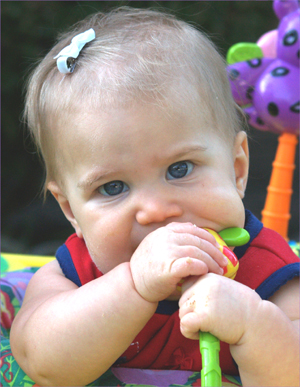 In this stage,
pleasure is focused around the mouth (lips, tongue, cheeks)
and the infant enjoys actions such as sucking, biting, or
swallowing.
In this stage,
pleasure is focused around the mouth (lips, tongue, cheeks)
and the infant enjoys actions such as sucking, biting, or
swallowing.
A newborn is completely dependent on his
caregivers, particularly his mother, and his libido (or sexual
energy) is directed toward her because she is the person who
is meeting his needs and creating his pleasurable experiences.
The mother's response to the baby will determine how
he learns to view the world around him.
A positive
experience can lead to feelings of trust, comfort, safety, and
satisfaction, whereas a negative experience can create
feelings of danger, frustration, or uncertainty.
The
main conflict at this stage is weaning, and this can be a
little scary for a baby since he has to leave the safety of
his mother's arms and become less dependent on his parents for
the task of eating.
A successful journey through this
stage will produce a healthy child; however, Freud believes
that many people become fixated and carry some problems with
them into adulthood.
There are two types of
personalities identified:
The Oral-Passive Personality
- An Overly Optimistic Adult Focused on Oral
Gratification
If a baby experiences some frustrations
during the first several months of his life, such as
difficulty suckling, a tense or stressed mother, or early
weaning, then he can become what Freud calls an oral-passive
personality.
He also believes that this type of
personality can result if an infant is overindulged or
receives "excessive gratification".
Some experts argue
that it is impossible to "over-gratify" an infant. Most babies
will instinctively stop eating when they are full. And, can
you really excessively hug, hold, caress, or cuddle your baby?
Anyway, an oral passive adult tends to be overly
optimistic (which Freud claims comes from over indulgence),
extremely dependent on others for the gratification of their
needs, gullible, too trusting, and is often obsessed with oral
activities such as drinking, smoking, eating, or kissing.
The Oral-Aggressive Personality
- A Pessimistic Adult
with a 'Chewing' Obsession
An oral-aggressive
personality can begin to develop during teething. If a nursing
baby is punished for biting while feeding or if he is weaned
because of teething, then Freud claims that he can carry a
need for biting things into his adulthood years.
An
oral-aggressive adult will be pessimistic, hostile,
aggressive, and argumentative.
He will have an
obsession for chewing on things such as pencils, gum, or
fingernails, but he will also have a "biting" or sarcastic
personality.
The Anal Stage (18 months - 3-4 years)
- Libido Challenge, Fixation: Toilet Training
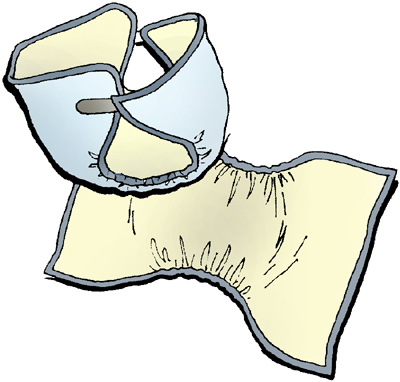 At this
stage, the child is very interested in his bodily functions
and the libido is focused on the anus and the controlling of
both the bladder and bowel.
At this
stage, the child is very interested in his bodily functions
and the libido is focused on the anus and the controlling of
both the bladder and bowel.
The conflict of the anal
stage is toilet training and Freud felt that it was extremely
important to personality development.
Up to this point,
a child can empty his bowel or bladder whenever (and wherever)
he wants, and according to Freud this produces great pleasure.
Now, all of a sudden, he is being told that he must
wait for certain times and places. What was once instinctual
must now become a controlled and "conscious" action.
In the oral stage, the child has no choice in the weaning
process; however, toilet training offers a child his first
opportunity to have some control over his own outcomes.
In fact, it often becomes a "weapon" or source of manipulation
for him to use against his parents, since a parent cannot make a child comply.
So, if the process of toilet
training is not going well, the child may display his
frustration is one of two ways.
The Anal-Aggressive
Personality
- A Possessive Adult with an Explosive Temper
A child may decide that he is not going to follow the new
rules and will simply empty his bladder or bowels whenever and
wherever he pleases.
In this case, the child is in
charge.
Parents may act happy when he uses the potty
and very sad or heartbroken when he doesn't.
Now, he
is manipulating his parents by choosing when and how to comply
to their wishes.
If this behavior is allowed to
continue, the child will develop what Freud calls an
Anal-Aggressive or Anal-Expulsive personality.
Anal-Aggressive adults tend to be sloppy, disorganized, cruel,
destructive, prone to temper tantrums, and may view other
people as objects to be possessed.
The Anal-Retentive
Personality
- A Stubborn Perfectionist Adult
According to Freud, some parents are too lenient and allow the
child to control the toilet training process; however, there
are also those who are far too strict.
These are the
people who compete with their friends to see whose child will
be trained first because they believe that their parental
abilities or child's intelligence are somehow connected to the
early achievement of this milestone.
These types of
parents are intense and rigid, and may use punishment,
humiliation, or manipulation to force their child to comply.
In this case, a child may retain or hold his feces as
a means of maintaining some control over the situation. Freud
believed that this behavior led to an Anal-Retentive
personality.
As adults, anal-retentive personalities
are often perfectionists. They are stubborn, stingy, dictorial,
obsessively clean, and find their security in possessions.
Phallic Stage (Ages 3-4 until Ages 5-7)
- Libido
Challenges, Fixation: Oedipal Complex &
Electra Complex
In this stage the libido is focused on
the genitals.
This is the time when children become
curious about the differences between boys and girls and may
start asking questions about "where babies come from".
Sigmund Freud believed that the major conflict faced in
this stage is the emergence of the Oedipal Complex.
A
child will experience a desire for the parent of the opposite
sex and may also feel a dislike or sense of competition with
the parent of the same sex.
If an Oedipal Complex (sometimes
referred to as the Electra Complex for girls) remains
unresolved, Freud outlined two major types of personalities
that can develop.
Feeling Rejected by the Parent of
the Opposite Sex
- May Lead to Relationship Withdrawal or
Relationship Overindulgence
If a boy feels rejected by
his mother (she does not return his desire) but also
threatened by his father's manhood or masculinity (because his
mother is attracted to his father and not him) then he can
develop low self-esteem when it comes to his sexuality.
This can manifest is one of two ways - either he withdraws
from relationships with the opposite sex or he becomes a
"ladies man" who has several relationships without any
commitment.
He will typically need to be praised or
supported in order to keep his self-worth elevated and may
suffer feelings of inferiority or inadequacy without constant
appreciation and affirmation.
Similarly, if a girl
feels rejected by her father (because he does not return her
desire) but also threatened by her mother's beauty or
femininity then she can also develop a low self image and may
either avoid relationships with the opposite sex OR begin
engaging in several physical yet non-emotional unions.
However, there is also another scenario that can emerge.
Feeling Preferred by the Parent of the Opposite Sex
- May Lead to Inflated Ego and Self-Centeredness
In
some cases, a boy will not feel rejected by his mother, but
will in fact, believe that she prefers the son over the father.
This is what we would call a "mommy's boy". In this
case, a boy views his father as weak and lacking, and
therefore will develop a very high opinion of himself.
This can pose a problem when he leaves the home and learns
that not everyone loves or appreciates him as much as his
mother.
Similarly, a "daddy's girl" views her mother as
nothing more than a housekeeper or servant and believes that
she is favored by her father. In this case, she will become
very self-centered and vain.
Latency Stage (7- Puberty)
- Libido Challenges, Fixation: Non-engagement in Social Activities
During this stage, Freud claims that sexual impulses and
libido are suppressed.
Children are focused more on
developing peer relationships and pursuing other interests
such as hobbies and sports.
Sexual energy is still
present, but it is repressed because other things take a
higher priority.
If fixation occurs in the latency
stage it is because of the lack of ability to follow the
direction of the energy into social relationships and hobbies.
Freud has been criticized for his lack of detail and
interest in this stage of development. While he admits that
social skills are built during this time, Freud seemingly
glosses over the latency stage.
Genital Stage (From
Puberty and Onwards)
- Libido Challenges, Fixation: Impotence
or Frigidity
Puberty brings a resurgence of the sex
drive and the libido focuses on the pleasures derived from
sexual relationships.
There is conflict during this
stage, although Freud is not as specific about its nature and
believes that it is not as severe as the conflict experienced
in earlier stages.
If a person has come through all
subsequent stages with no major fixations then he may be able
to develop strong heterosexual relationships.
According to Freud, an inability to form healthy heterosexual
relationships is an indication of incomplete development.
He also claims that women suffer what he calls "penis envy".
In fact, his theory implies that the only truly
developed human being is the heterosexual male, and women,
homosexuals, or those who choose abstinence (priests, monks
etc) are not fully developed because of negative experiences
at one of the stages.
As you can imagine, this has
come under quite a bit of criticism in recent years, and is
largely responsible for the discrediting of Freud's ideas.
Freud Theory No. 4:
-
Psychoanalysis
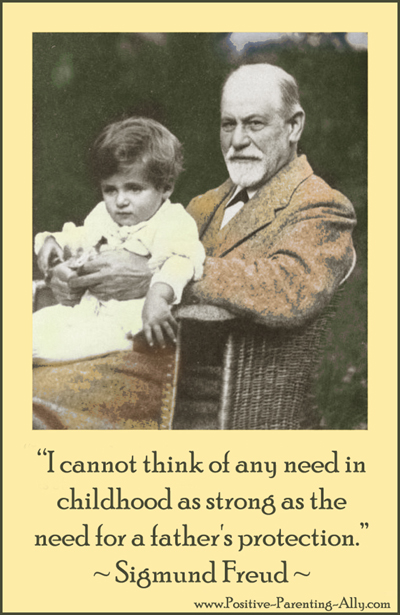 Although
pure psychoanalysis has
declined in popularity, many of the principles are still
evident in modern counselling techniques.
Although
pure psychoanalysis has
declined in popularity, many of the principles are still
evident in modern counselling techniques.
Since Sigmund
Freud believed that much of behavior begins in the unconscious,
he determined that the only way to discover the root of mental
illness or unhealthy behavior is to probe the unconscious to
unveil its secrets.
Hypnosis and Free Association
At first, he used hypnosis as a method of revealing buried
memories or unaware thoughts. While this proved to be
effective, he eventually found greater success with a
technique he called Free Association.
Free Association
involved having the patient talk about whatever came to mind
and express every thought, image, dream, or perception that
they were aware of at that point in time.
The
therapist takes a very hands-off approach while the patient
basically 'daydreams' out loud.
Freud believed that,
although the person was not hypnotized, the thoughts expressed
during Free Association were not subject to conscious choice
and were actually an insight into what was happening within
the unconscious.
His goal was to identify the
childhood experience or perception that was responsible for
causing current problems.
The only drawback was the
fact that Freud believed all personality was set by the age of
5, 7 at the latest, and that nothing that happened beyond this
point was relevant in the determination of adult behavior.
Dream Analysis
Sigmund
Freud also used dream analysis quite
extensively since he believed that the unconscious mind was
suppressed during waking hours but expressed itself freely
while the conscious mind was sleeping.
The idea of the
unconscious mind, the importance of childhood experience on
adult behavior, and the employment of defence mechanisms are
all principles that can be seen in contemporary psychology.
So, although psychoanalysis - in its purest form - is
rarely used anymore, it definitely laid the foundation for
many subsequent methods of therapy.
Academic Criticism of Sigmund Freud
Criticism of Freud No. 1:
- Scientific
Validity ... How Do You Measure the Libido?
From a scientific point of view, many disagree with the fact that Freud used terms which cannot be verified - how do you test or measure libido?
Criticism of Freud No. 2:
- That
There is Too Much Emphasis on Biological Factors
Still
others argue that he placed too much emphasis on biological
factors, claiming that the instincts and drives that motivate
us are purely inherent.
Some studies have refuted this
fact, showing that social experiences - rather than sexual
factors or libido - are more influential in shaping
personality.
Criticism of Freud No. 3:
- That the
Individual Is Powerless Vis-a-Vis His Needs
Many
experts take objection to the idea that we are all victims of
our instincts, drives, and conflicts, with little control over
our own behavior or actions. Freud eliminates the "free will"
aspect and suggests a more deterministic view of personality.
This means that a child cannot be taught to make
responsible or beneficial decisions, cannot learn from his
mistakes, and has no control over his own fate or future. His
drives and his parenting will determine who he becomes with
little or no input from the child himself.
Criticism
of Freud No. 4:
- That Personality Is Fixed after the Age
of Five
Still others dispute the suggestion that our
future is shaped by our past and all our thoughts,
aspirations, plans, and decisions are completely determined by
experiences we had before the age of five.
A child
hasn't even built a lot of the cognitive or intellectual
skills needed for adulthood functioning, so how can he
possibly be fully developed?
Based on Sigmund Freud's theory,
parenting becomes irrelevant after age 5 since everything that
matters has already happened.
Criticism of Freud No. 5:
- That Women Can Never Really Become Fully Developed
Sigmund Freud has also been criticized for his claim that
women have undeveloped superegos because they suffer from
penis envy and feel inferior about their bodies.
He
also believed that the heterosexual male is the ultimate
example of a fully developed person, implying that everyone
else is fighting a losing battle.
A woman might as
well not even try because she will never achieve Freud's
highest level. In fact, he focuses almost entirely on male
development and devotes little time to the uniqueness of women.
Criticism of Freud No. 6:
- That We Are Forever
Trapped by our Fixations
Also, Sigmund Freud views mankind in a
very pessimistic way, believing that we are trapped in an
endless struggle to deal with conflicts and inner forces - a
battle that we cannot win.
There is no hope,
encouragement, or possibility of improvement. If a child
didn't come through the first five years successfully, he was
doomed for the rest of his life.
Criticism of Freud
No. 7:
- A Theory on Child Psychology without Ever Studying
Children
Finally, Freud based his theory almost
completely on the memories and recollections of adult patients
and much of his data was provided through hypnosis, free
association, and dream analysis.
Many experts argue
that it is not always possible to verify an individual's
memories or information obtained through psychoanalytic
methods.
It is difficult to accurately document the
development of children when you haven't actually observed or
studied children.
Sigmund Freud Books and Publications
Sigmund Freud published more than 320 works including
books, articles, and essays throughout his lifetime.
While all of his writings are important and quite interesting,
there are a few that stand out as being among his most
important and popular publications.
The Psychopathology of Everyday Life (1901)
In this book, Freud talks
about actions that deviate from the norm or stereotype such as
slips of the tongue, forgetting names, concealed childhood
memories, mistakes in speech, and other errors in both reading,
and writing.
Freud believed that all these deviations
are actually manifestations of the unconscious and that they
reveal those things that are hidden in the mind such as
worries, fantasies, drives, and motivations.
This book
provides a brief outline of the psychoanalytic theory, but for
a full understanding of Freud's theories, it should be read in
combination with three other popular works:
- The Interpretation of Dreams (1901)
- Introduction to Psychoanalysis (1917)
- Ego and Id (1923)
Three Essays on the Theory of Sexuality (1905)
This is thought to be one of Freud's most important books and outlines his theory of psychosexual development, including the ideas of the Oedipus Complex, penis envy, castration anxiety, and the effects that unresolved conflict can have on adult behavior.
Civilization and Its Discontents (1930)
This is
perhaps Freud's most well-known publication and discusses the
relationship between the individual and the civilization in
which he lives.
Freud suggests that there is a great
deal of tension between the individual and society because a
person has an inherent desire for freedom while society
inflicts very specific rules of conformity and expected
behavior that requires a repression of many natural instincts.
Since the Id is driven by the pleasure principle, it
is concerned only with immediate gratification.
It has
no concern for the effect that certain actions will have on
others, but wants its needs met regardless of the propriety of
methods.
Society, on the other hand, has laws
prohibiting certain actions such as killing, rape, stealing,
or substance abuse.
The Id (or biological instincts)
is at odds with the laws that are created to protect society
as a whole, and this results in discontentment in the
individuals.
This book explores the root of
discontentment and the consequences that deviation has on both
the individual and civilization.
Your Positive Parenting Ally,
Birgitte

Want to stay in touch and get the latest news?
Sign up
for my free newsletter
Parent Coaching
- For Inner Peace, Clarity and a Deeper Connection to Your Child
 Being a parent can feel like a double-edged sword. Life with kids may feel like the greatest gift you have ever received, while at the same being hugely challenging, often leaving you confused, stressed and overwhelmed.
Being a parent can feel like a double-edged sword. Life with kids may feel like the greatest gift you have ever received, while at the same being hugely challenging, often leaving you confused, stressed and overwhelmed.
When we feel like this, we've lost touch with ourselves. We can't hear our own inner voice, and it's difficult to know what is 'right' for us and how to act.
I offer in-depth parent coaching to help you regain your balance and get back in touch with yourself. From a place of inner peace and clarity, your will find your own answers which will help you reconnect with your child from a place of unconditional love and acceptance.
Read more about my parent coaching here.
Where Would You Like to Go Next?
Famous Parenting Experts Overview
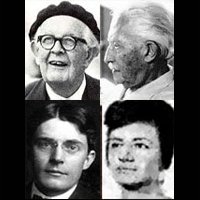 Famous Parenting Experts and Their Parenting Styles Theories: Humanism vs. Behaviorism. |
Parenting Experts Related to HUMANISTIC Parenting Styles (Founders, Refiners, Supporters or 'Coiners')
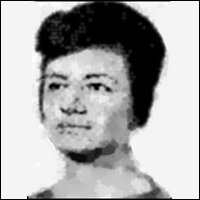 Diana Baumrind Spot-on: Biography, 3 Parenting Styles and Criticism (Spanking). |
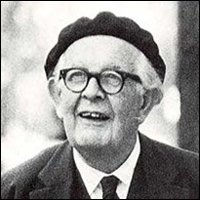 Jean Piaget Biography, Theories and Books: The Earliest Torch Bearer of Humanism. |
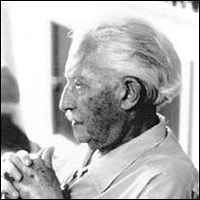 Erik Erikson Biography and Theories: The 8 Developmental Stages, Identity Crisis and Ego Identity. |
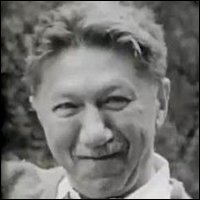 Abraham Maslow Biography: The Father of Humanistic Psychology and Self Actualization Theory. |
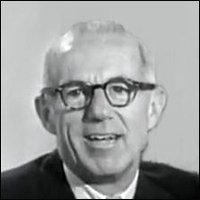 Dr. Benjamin Spock Biography, Theories and Books: The Controversial Forefather of Intuitive Parenting. |
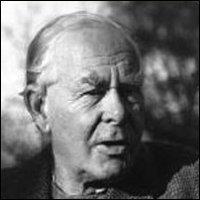 A Biography of John Bowlby: The Father of Attachment Theory. |
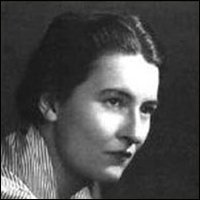 An Intriguing Mary Ainsworth Biography: The Refiner of Attachment Theory. |
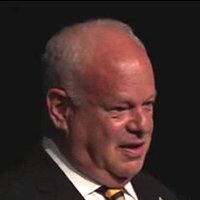 Martin Seligman: The Critic of Traditional Psychology and Father of Positive Psychology. |
 Carl Rogers Biography, Theories and Books: The Founder of Humanistic Psychology. |
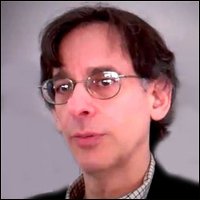 Alfie Kohn Biography, Theories and Books: The Father of Unconditional Parenting. |
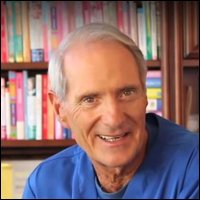 Deep Insights into the Essence of Dr Sears' Attachment Parenting - Along with a Fascinating Historical View on the Slow Rising Consciousness of Attachment Parenting. |
Parenting Experts Related to BEHAVIORIST Parenting Styles (Founders, Refiners, Supporters or 'Coiners')
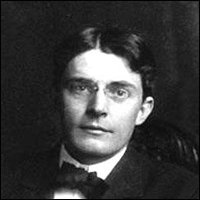 John B Watson Biography, Theories and Books: The Father of Behaviorism. |
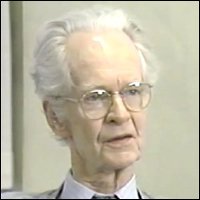 B. F. Skinner Biography, Theories and Books: Father of Radical Behavorism. |
 Amy Chua Biography and Theories: Tiger Mother's 9 Parenting Principles. |
Back to the top of this page about Sigmund Freud the Controversial Pioneer of Psychology: The Famous Psychosexual Stages of Child Development
Go to the Positive Parenting Ally Homepage







